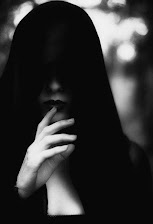Beyond the Facade - Meharma Sultan
Some villains are created due to circumstances but, some people are born evil..
In the realm of literature, few characters have captivated me as profoundly as Meharma Sultan, the enigmatic antagonist of the novel Bakht. As I traversed the pages of this gripping narrative, I found myself increasingly entwined in Mehrma's complex web of emotions, motivations, and contradictions. This blog post is an exploration of Mehrma's multifaceted personality, delving into the intricacies that render her both a compelling villain and a poignant, innocent soul.
The Villainous Facade:
Meharma is an innocent girl who does everything solely to please everyone but, Meharmah's actions are undoubtedly driven by a desire for power and control. She manipulates those around her, using her intelligence and charm to further her own agenda. Her hate for fairy tales and ruthless ambition is matched only by her cunning, making her a formidable opponent.
The Innocent Within:
But still, as the story progresses, we catch glimpses of a deeply wounded and vulnerable individual. Meharma's past is marked by trauma and hardship, shaping her worldview and informing her actions.
While reading her character I had several questions in mind, mainly:
1. Is evil an inherent trait, or is it a product of circumstance and environment?
2. Can we find empathy for those who have committed wrongs, or are some actions unforgivable?
3. Are people simply good or evil, or is human nature far more complex?
Her self Awareness:
One of the most striking aspects of Meharma's character is her propensity for introspection and self-awareness. In a poignant moment, she confesses:
"I am not a monster, I am just a product of my circumstances. I have been hurt, betrayed, and abandoned. I have learned to rely only on myself, to trust no one. But deep down, I still yearn for connection, for love, for acceptance."
This dialogue encapsulates the essence of Meharma's character, laying bare her vulnerabilities and contradictions. It's a powerful reminder that even the most flawed individuals possess a deep humanity.
Tragic ending:
I usually find ways to defend villains but in her case I couldn't even do that. She had the choice to do better, but she killed the one who tried to bring her out in light from darkness.
Not only that, she justified her actions usually by saying (referring to herself) :"Magic was not her intention, it was her compulsion."
This arrogance of her lead her from losing her unborn child, to separation from her husband and then finally in jail for the lifetime.
Ending of her has never saddened me






This is a very insightful post,I really enjoyed your analysis .
ReplyDeletePleased😊
DeleteNice effort.keep it up.
ReplyDelete😊
Deletenyce, keep going
ReplyDelete😊
DeleteShe was such a cruel sister
ReplyDeleteSuch a deep and impactful post
ReplyDeleteshe's so evil
ReplyDeleteIndeed
DeleteNice efforts
ReplyDelete👍
ReplyDelete